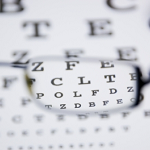 by Nora El Zokm
by Nora El Zokm
In the article, The ambivalent mind can be a wise mind: Emotional ambivalence increases judgment accuracy, the authors argue that emotional ambivalence – where both negative and positive emotions coexist – leads to greater accuracy in our estimates and judgments. They theorize that emotionally ambivalent individuals are more likely to consider alternative perspectives, leading them to make more accurate judgments and estimates than those experiencing a single emotional state.
Four studies were conducted to test their theory. In the first, participants were asked to write about a time in which they experienced happy, sad or ambivalent states, and were then asked to estimate the average daily temperature in eight different U.S. cities two weeks from the date of the study. The estimates made by the ambivalent participants were more accurate than those in the happy or sad states. In the second study, participants were again assigned to one of the three states, but this time were asked to answer general knowledge questions. Again, the participants in the ambivalent state made more accurate statements than individuals in either single state.
In the third study, participants were asked to imagine that they were reviewing a candidate for a promotion. For the sad states, they were asked to imagine that they were feeling “down or depressed” about the candidate, for the happy states they were asked to imagine that they were feeling “extremely happy” about the candidate and for the ambivalent state they were asked to imagine that they had mixed feelings about the candidate’s performance. Participants in the ambivalent category were just as likely to seek positive feedback as they were to seek negative feedback whereas participants in the happy state sought positive feedback and sad state participants sought negative feedback.
In the final study, the participants were asked to write about a time in which they experienced sadness, happiness or emotional ambivalence and were then asked to estimate the tuition for seven private and public US universities. After their initial estimates participants had the opportunity to edit their answers after reviewing up to five alternatives. Emotionally ambivalent participants were more likely to consider the alternatives when making their final decisions, which in turn improved the accuracy of their estimates.
What are the implications for conflict resolution? As CR practitioners the desire to essentialize conflict situations into clearly defined good-bad distinctions can be strong. How else can we make sense of a problem in order to build the most effective intervention? But it seems that a certain comfort with ambivalence is actually the better remedy. Our own ambivalence could compel us to second guess our notions, rethink our instincts, consider alternatives and actually make more accurate judgments and decisions.
Rees, L., Rothman, N. B., Lehayy, R. & Sanchez-Burks, J. (2013). The ambivalent mind can be a wise mind: Emotional ambivalence increases judgment accuracy. Journal of Experimental Social Psychology, 49(3), 360-367.
doi: http://dx.doi.org/10.1016/j.jesp.2012.12.017